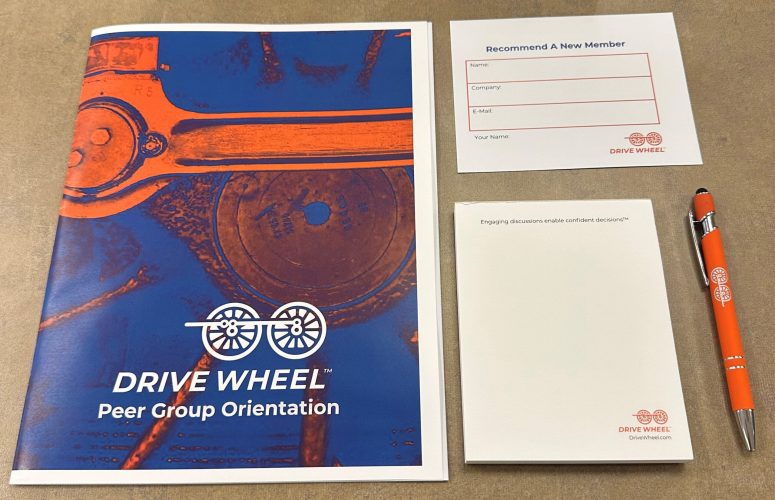
Enhancing Meeting Productivity Through Effective Facilitation: Why Business Leaders Need Facilitators
Have you attended a group discussion where you hoped to have a great conversation and learn from the other attendees, but after the personal conversations, three tangents, and Rick, who wasn’t even invited, monopolized the conversations, you left without any new information. An unfacilitated discussion tends to drift off topic, allocate time poorly, and defer to dominant voices.
As revealed by a study conducted by the Harvard Business Review, a staggering 71% of senior managers across various industries find meetings to be unproductive and inefficient. A significant contributor to this issue is the absence of a skilled facilitator. Rather than waste time in unproductive discussions that run off course, leaders should choose to include a facilitator to optimize their discussions and drive productivity.

What is a Meeting Facilitator?
A meeting facilitator is a skilled professional who takes on the responsibility of guiding the meeting process to ensure it stays on course, encourages active participation, and achieves the meeting goals. The meeting facilitator sets the stage for active participation and an engaging meeting. This starts the moment folks enter the room, by promoting a sense of presence and purpose A facilitator promotes open discussion but actually talks very little themselves. They ask questions and use tools to get everyone else in the room to open up and get to the crux of what they’re saying.

Ten Reasons Why Facilitators Create Better Discussions
- Keeping Meetings on Track: With a designated facilitator, meetings stay focused on the agenda and relevant topics. This is crucial for maintaining productivity within the time constraints and avoiding tangential discussions. It can be fun to catch up industry friends, but it is always best to move that personal conversation to a coffee break or dinner.
- Setting a Clear Agenda: Productive meetings start with a well-defined agenda to ensure everyone is approaching the meeting with the same mindset. A facilitator creates a structured agenda before the meeting and shares it with all participants, ensuring everyone is aligned and prepared.
- Anti-Trust Observation: It’s easy for participants to get excited about a topic they are discussing and want to share more. A trained facilitator can help keep the conversations directed away from sensitive topic areas and keep the focus on the agenda.
- Involving Everyone: It is easy to be a spectator within a meeting and simply to watch all the discussion and conversation take place around you. Facilitators actively engage all participants by asking questions, inviting different perspectives, and ensuring that everyone’s input is valued.
- Facilitating Discussion: Skilled facilitators employ open-ended questions and techniques to stimulate meaningful discussions. They balance participation and guide individuals to contribute at appropriate times.
- Establishing Meeting Norms: Facilitators help establish ground rules and meeting norms. These guidelines create a familiar and respectful environment, fostering better communication and collaboration among participants.
- Controlling Proceedings: Facilitators maintain adherence to processes, timekeeping, and discussions, ensuring that meetings run smoothly, and objectives are met. Wise facilitators set the pace of meetings to accommodate the richness of the discussion and the lack of time. It’s about controlling the meeting environment, not people.
- Steering Focus and Activity: It is very easy for a group discussion to head off on a path that is interesting and stimulating, but not related to the agenda. Facilitators prevent meetings from straying off-topic and ensure discussions revolve around matters of importance and relevance, making the most of the time available.
- Assisting Dynamics: The facilitator recognizes and addresses factors that contribute to or hinder productive dialogue. From managing dominant personalities to ensuring a lighthearted atmosphere, facilitators optimize interactions.
- Inclusion of Virtual Participants: In the age of hybrid meetings, facilitators play a critical role in ensuring that virtual participants are not excluded. They manage audio-visual connections, guaranteeing that all voices are heard.
In Conclusion
In a world where time is a precious resource, business leaders must strive to make every meeting count. Employing a skilled facilitator can transform lackluster discussions into dynamic and productive sessions. A facilitator’s ability to manage proceedings, encourage engagement, and steer discussions toward meaningful outcomes is an invaluable asset in driving business success.
To put it simply, the role of a facilitator is not just limited to moderating discussions; it’s about enhancing the effectiveness of meetings and maximizing the potential of every participant. As business leaders, choosing to embrace the expertise of a facilitator can lead to more purposeful discussions, better decision-making, and ultimately, improved productivity that propels your organization forward.

Engaging Discussions Enable Confident Decisions™
When you’re busy with the daily demands of your job, it’s easy to overlook the opportunities that will drive long-term growth. When you become a member of a Drive Wheel peer group, you can identify new strategies, reduce risk, and make confident decisions that will grow your business faster and more strategically.
We host two-day in-person meetings twice a year where leaders discuss their new strategies, innovation plans, and business challenges to get feedback from their peers. Members leave the meeting knowing they have thought about their idea from every angle. Between meetings, we conduct benchmarking studies and weekly news roundups to keep our members informed about changes in the industry.






